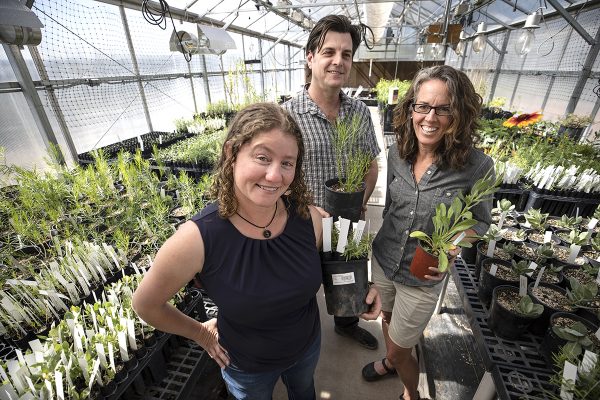Developing Pollinator-Dependent Plant Materials For Use In A Growing Restoration Economy
Purpose: We propose to address critical knowledge gaps to support the development of pollinator-dependent plant materials for use in the rapidly growing “restoration economy”, where agencies, nonprofits, and businesses collaborate to restore degraded ecosystems to promote agriculture, tourism, conservation, fire resilience, and multi-use landscapes. We propose the largest provenance trial in the arid western US that includes nearly 50,000 plants of 17 plant species to develop seed zone guidelines and predict plant-pollinator response to climate change. We will also initiate a regional seed production trial of 200,000 plants to spearhead a farm-based seed development program for pollinator plants across three states. Involving multiple stakeholders, this project will result in data-driven best practice guidelines for selection, combination, and cultivation of plants and provenances for large-scale restoration seed production among agriculturalists working to supply restoration professionals with needed forb seed to promote pollinator communities.
Plant species: Pollinator spp. Native to the Colorado Plateau
Argemone munita, Asclepias subverticillata, Brickellia californica, Dieteria canescens, Ericameria nauseosa, Erigeron divergens, Eriogonum racemosum, Gaillardia pinnatifida, Gutierrezia sarothrae, Heliomeris multiflora, Heterotheca villosa, Linum lewisii, Oenothera pallida, Penstemon barbatus, Senecio flaccidus, Sphaeralcea parvifolia, Thelesperma megapotamicum
Participants:
Kevin Grady, Assistant Research Professor, Forestry
Karen Haubensak, Assistant Research Professor, Biology
Clare Aslan, Associate Professor, Environmental Sciences
Funding: US Department of Agriculture
